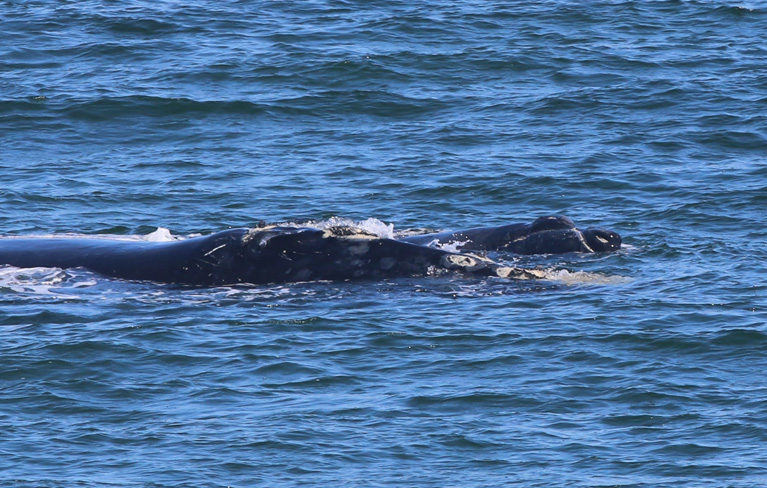
The hits just keep on coming – literally and figuratively – for the critically-endangered North Atlantic right whale population.
The huge, charismatic marine mammals that visit our local waters each winter to give birth continue to edge toward extinction – mostly due to ship strikes and lethal entanglement in fishing gear – though there are some positive developments that could slow the trend.
Julie Albert, right whale program coordinator for the Palm Bay-based Marine Resources Council, says so far this year 10 of the animals have died while only seven calves were born – a significant blow for a worldwide population estimated at just 400.
In 2018, Albert noted, there were three deaths and no births – something that’s never happened before in a calving season. The leading causes of mortalities, she said, are fishing gear entanglements and ship strikes.
Still, Albert is not giving up on the whales, which got their name during whaling days because they were docile and easy to harpoon and produced lots of whale oil.
“We know there are 400 out there. Let’s see what we can do,” Albert told a small gathering at Marine Resources Council headquarters last week.
“We’re still hoping for a lot of calves this season. In 2009, 39 calves were born and all the calves born then are now sexually mature. Each year, it’s one of those wait-and-see things.”
National Oceanic and Atmospheric Administration biologists have five confirmed sightings of potentially pregnant whales – including a whale named Harmonia, spotted six miles off Jacksonville last month.
On another positive note, Albert said she was heartened to learn during a right whale consortium meeting last month in Maine of significant progress in the development of rope-less commercial fishing gear. She said at least four manufacturers are now selling bottom lines for crab and lobster traps without the vertical buoy lines that commonly entangle the whales.
In 2016, a female right whale nicknamed Clipper showed up in Sebastian Inlet with her calf and became an instant local celebrity. But last summer Clipper was killed by a ship strike in Canada’s Gulf of St. Lawrence. Fortunately, her calf – nicknamed Sebastian – is now four years old and recently was sighted alive and well.
We could start seeing right whales off our beaches any day now, according to Albert.
“With the cold front, I’d like to think it’s going to drive them a little further south,” said Albert, who recruits and trains a network of volunteers to look for right whales and report the sightings. Training sessions for spotters will be held in January at the Ted Moorhead Lagoon House in Palm Bay.



